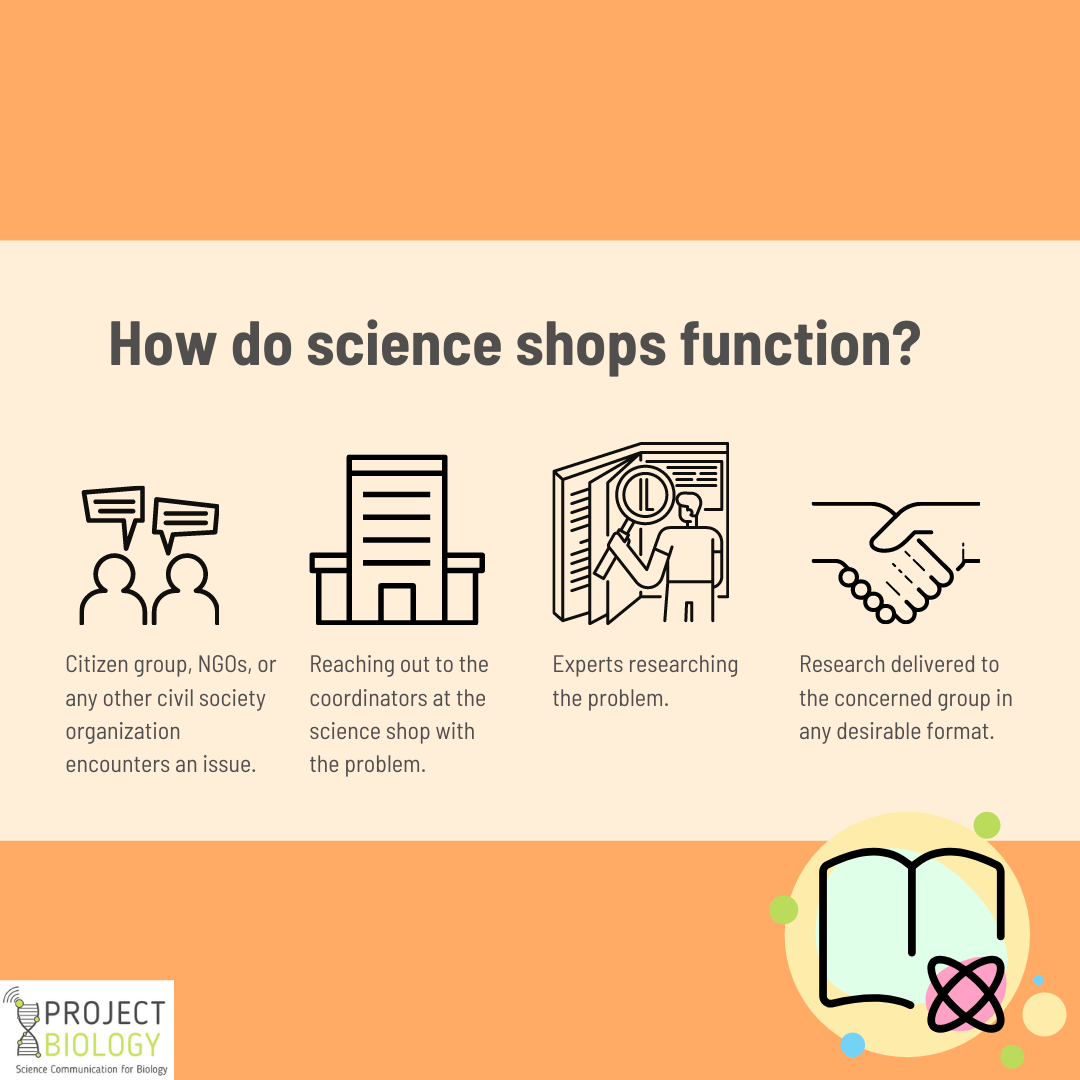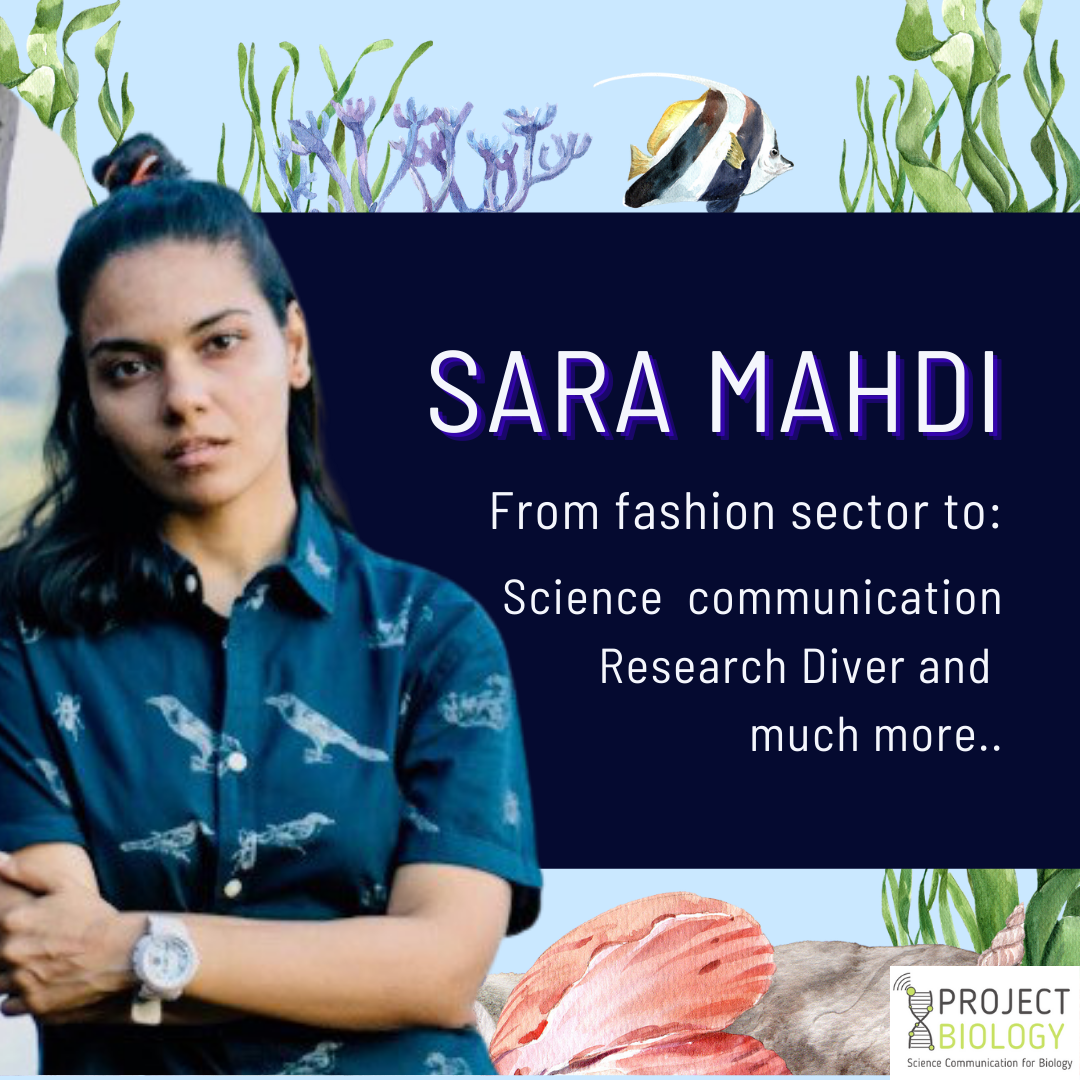While talking about the basics of science communication this month, in this article, we discuss three important points:
- Background one needs to begin with science communication.
- Different options to study science communication.
- The skillset that you need to practice science communication.
What background do you need?
To begin with science communication, you do not need a particular background. Even if a person is not particularly from a science background but can connect with and talk about the science they see in their everyday life, they can pursue science communication.
However, having a science background definitely helps one understand the concepts better. It helps one connect the different happenings and present the whole or part of the scientific phenomena to their audiences. You can start even during your bachelor’s studies.
But, yes, as you proceed further and study a subject in detail, you gain a deeper insight and can communicate many hidden aspects that may go unnoticed by a novice.
An important piece of advice for you is not to start communicating everything related to science or, say, biology. We understand that there is a lot to be told, but it’s always good to carve a niche for yourself.
Having a niche helps you gain deeper insights into the area, help you establish yourself as a voice of reason in the area, build an audience base and credibility. Be a master of one trade, not a jack of all.
What are the study options?
To practice science communication, you do not necessarily need to study the subject formally. But yes, having a formal education helps get a grasp of the basic principles, concepts, networking and finding new opportunities.
Let’s understand the available study options per the domestic and international scenario. Starting with the domestic options, that is, courses available in India. Presently, there are no undergraduate courses for science communication in India.
Science communication continues to grow and gain recognition in India. Hence you may not find ample opportunities.
Even if you do come across an undergraduate course, we would advise you to go for a subject-based degree first, such as life sciences, zoology, botany, or any other course that interests you. It helps you gain knowledge of the subject area first and also allows you the flexibility of testing waters with other careers as well.
Science communication courses in India
Once you have learned the basic workings of the subject area, you may go for a postgraduate course. For the postgraduate level, in India, the following colleges offer science communication:
- M.Sc. Science & Technology Communication by CSIR-National Institute of Science Communication and Information Resources (NISCAIR), Delhi. (Important information: CSIR-NISCAIR & CSIR-National Institute of Science, Technology and Development Studies (NISTADS) merged into one institute called National Institute of Science Communication and Policy Research).
M.Sc. Science and Technology Communication by Dept of Media Sciences, College of Engineering, Anna University, Chennai. – Could not be confirmed
M.Sc. Science Communication by Centre for Science Communication, School of Future Studies and Planning, Devi Ahilya University, Indore. – Discontinued
M.Tech. in Science Communication by BITS Pilani in collaboration with the National Council of Science Museums (NCMS). The lectures and tutorials are held at NCSM, and candidates are provided with free hostel accommodation. – Discontinued
- Post Graduate Diploma in Science & Development Communication by Centre for Development for Imaging Technology (C-DIT), Kerala.
- Training Course in Science Journalism by National Council of Science & Technology Communication (NCSTC) in collaboration with Indian Science Communication Society (ISCOS), Lucknow, U.P
If you wish to pursue a research career in science communication, investigate the science of doing science communication, you can go for PhD in the subject. In India, CSIR-NISCAIR offers a PhD Science & Technology Communication, and the National Institute of Advanced Studies (NIAS), Bangalore, offers PhD in Science and Risk Communication.
Studying science communication overseas:
Science communication, as a discipline, is particularly well established in the USA, the UK, Europe and to some extent in Australia. There are numerous quality masters programs available for study.
- For courses in the USA.
- For courses in the UK and Europe.
- For courses in Australia: We recommend you check out the courses at Australian National University.
Besides the above-mentioned courses, you can also go for courses in science writing if you want to communicate via writing. If you want to communicate science via graphics, data, movie-making or others, you can also explore the courses in related fields. You can then go on to apply the skills in communicating science.
What skills do you need?
There is a difference between good and great, and in science communication, that difference does not lie solely in the knowledge of the subject. Only because you know the subject well does not mean you can communicate it as well.
Think of all the school teachers we had, none of them was dumb not to know what they taught, but only a few good ones managed to strike a chord with us. So, to strike a chord with your audiences, we say you develop the following skills:
Empathy
This skill is most important for you to put yourself in your audience’s shoes and think from their perspective. Whenever you are communicating science, try entering a two-way conversation, not a dictatorial one-way lecture about science.

Listening
It would be best if you listen more than you talk. Yes, we are saying this, as a communicator, you need to listen more than talk. When you listen to the audience’s interests, values, beliefs, even the local folklore, you will learn the point of unity and ways to start a conversation. Listen to social media chatter by following the important hashtags like #sciencecommunication, #biology, #scientists etc.
Serial fact-checker
Communicating false science is worse than bad science communication. You might commit an error unknowingly, but the ripples can create a massive tsunami. So, always double-check the facts from at least 2-3 different credible resources, especially on a controversial topic.
Crafting messages carefully
Choose the words you put out carefully. Wrong wordings with vague messaging and ambiguity can be misinterpreted in many ways and lead to controversies. You can read here about the havoc created by unthoughtful messaging created for HPV vaccines in the USA.
Avid reader
Whether you are a science communication researcher or practitioner, you need to be an avid reader of research papers and books. You will read not only about science but also need to read good books to polish your skills, learn about new skills, and the fallout of previous communication activities. You can also sign up on Feedly, follow the topics that interest you and get all the happenings in one place.
Core skillset
This is the skill-set placing you in a niche and makes people connect with you. You may illustrate, write, talk about science in a particular context, make infographics, and more. Try mixing up things or focus on one.
You need not possess these skills from day one. It takes time to develop and polish skills. Michelangelo did not sculpt David on his first day of sculpting. But then, he did achieve that remarkable feat of work.
Stay positive, keep learning from your audience, stay consistent, and you will see the results.




